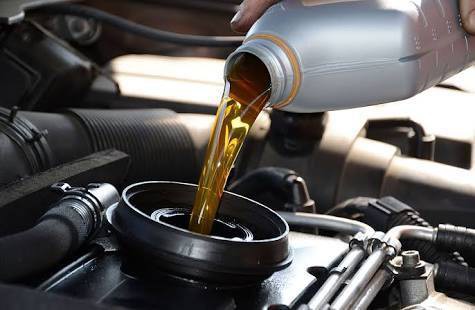
What is the recommended amount of engine oil for my vehicle?
"How
much oil does my vehicle require?" car owners who don't know much about
their vehicle sometimes wonder when it comes to basic maintenance. Whether
you're driving your first or tenth car, knowing the answer to this question is
crucial.
A
shortage of engine oil is one of the major reasons for car engine failure and
repairing it may be pricey because it is such a significant problem. Consequently,
reading this article will educate you on how to avert a future major disaster.
You
may either consult your owner's handbook or search online for a car service in Reading to arrange an appointment with a technician who will
be able to provide you with further advice while performing the needed service
recommendations.
Because
the engines in different vehicles have different sizes, they are constructed to
accept different amounts of engine oil. It's critical to understand key
details regarding your vehicle, such as how much oil the engine size takes, and
so on.
Most of this information can be found in the owner's manual for your car, which
I'm sure you haven't read. It'll be OK! The vast majority of people do not. You
won't have to wait too long to find out, though, because failing to do so might
result in a costly mistake. So, let's have a look at some various engine sizes:
•
For a single-cylinder engine, 3.0 to 3.5 litres of engine oil
•
For a two-cylinder engine, 3.5 to 4.0 litres of engine oil
•
For a three-cylinder engine, 3.5 to 4.0 litres of engine oil
•
For a four-cylinder engine, 3.5 to 4.5 litres of engine oil
• For a six-cylinder engine, 4.5 to 5.5 litres of engine oil
• For an
eight-cylinder engine, 5.5 to 7.5 litres of engine oil
Vehicles
with a dry oil sump, on the other hand, may need up to 12 litres of oil, or
even more in some circumstances.
We
are certain that your car has one of the engine sizes shown in the table
above; as a consequence, you can see the quantity of engine oil that is
necessary for the engine's proper performance and efficiency.
It
would be helpful if you jotted this information down somewhere accessible or
stored it on your phone, so you don't forget it. A book on engine oil capacity
is also available or ask a car mechanic by searching online for garage services.
Following
this standard and the recommended interval for changing your car's engine oil
is important for keeping your vehicle's engine alive and running for the next
several years until it reaches the end of its useful life. Meanwhile, you must
choose the right oil for your automobile based on a variety of factors.
According
to expert auto mechanics, merely changing your car's engine oil because it's
time isn't enough; you must also adhere to the manufacturer's specifications,
which are mentioned in the vehicle manual. Look up repair garages near me online and schedule a manufacturer-recommended servicing.
The
information is supplied to ensure that you are correctly guided in providing
essential vehicle maintenance so that it can go through its planned lifespan
and run efficiently until that time comes. The information in the next section
will help you choose the right oil.
Choosing the Right Engine Oil for Your Vehicle
The
necessity of choosing the right sort of engine oil for your car cannot be
emphasised, since engine oil is essential to the engine's proper running. There
are a few factors to consider while choosing engine oil for your vehicle:
1. Oil viscosity level
One of the first and
most essential factors to examine is the oil viscosity level, which is
represented by a number followed by a "W" and then another number.
The "W" denotes the viscosity level of the oil at 100 degrees
Celsius, whereas the first number represents the flow of the engine oil at
0 degrees Celsius. The number before the "W" is important to know
since the lower the number, the simpler it is for your car's engine to turn
over in cold weather, and vice versa.
2. Synthetic vs. traditional engine oil
For your car, you must decide between synthetic and conventional engine oil.
The use of conventional engine oil necessitates more frequent oil changes.
Synthetic oil, on the other hand, has a number of specialised compounds that
help with deposit removal. At lower temperatures, the additives help the oil
flow more efficiently and effectively. The viscosity of synthetic oil is
minimal, and it flows freely at high temperatures.
3. High mileage engine oil
Finally, if your car
has been driven for more than 75,000 miles, you might want to consider using high mileage oil. Certain specific conditioners in the oil ensure that the
internal engine seals expand, improving their flexibility and efficiency.
You'll be able to choose the optimum motor oil for your vehicle based on the
scenario if you consider the three criteria stated above.